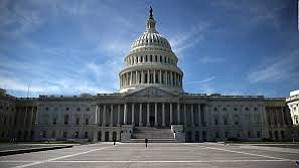The Senate Is Now Very Much in Play in 2018
CNN/Stylemagazine.com Newswire | 12/14/2017, 4:53 p.m.
Analysis by Chris Cillizza, CNN Editor-at-large
(CNN) -- Doug Jones' stunning victory in Alabama on Tuesday night sent a very clear signal heading into the 2018 election: No Republican Senate seat is safe.
What that means is this: Democrats now have a reason to believe that they could do something that was considered unthinkable as recently as the start of this week: Retake control of the Senate next November.
"The favorable map makes Democratic gains more challenging, but it's not just about geography, but also about voters," said GOP pollster Glen Bolger. "The electorate does not give political parties a long leash on control."
That map to which Bolger refers was seen at the start of this election cycle as definitive proof that Democrats wouldn't even sniff the majority for years to come.
Democrats have to defend 26 seats (two of which are held by independents) next November as compared to just eight for Republicans. Of those 26 seats, 10 are in states that Trump carried in 2016 -- including five that he carried by double digits. (The reason Democrats are defending 26 seats instead of 25 is that Sen. Al Franken has promised to resign in the wake of multiple groping allegations and there will now be two Senate seats on the ballot in Minnesota.)
A map like that is a once-in-a-lifetime dream for a party -- particularly when you already hold the majority. That's why, at the start of 2017, chatter was rampant in Republican circles that 60 seats -- and the filibuster-proof majority that goes with it -- was in the realm of possibility for Republicans.
That idea feels far-fetched this morning as Democrats celebrate their Alabama victory and Republicans stare down the reality of a fractured party and a less-than-motivated GOP base. (On Tuesday night, Doug Jones got 92% of all votes that went for Hillary Clinton; Roy Moore won just 49% of the votes that Donald Trump did 13 months ago in Alabama.)
And while Jones' victory, at its most basic, brings Democrats one seat closer to the majority, it has other more far-reaching effects as well.
It will put a major charge in Democratic fundraising -- for Senate races, yes, but likely for the House as well. It will also spur candidate recruitment for Democrats across the country in races from the Senate all the way down the ballot. You can just imagine a Democrat waking up this morning and thinking to herself: "If Doug Jones can win in Alabama, why can't I run and win in [fill in the blank] state?"
Then there is the effect that Jones' win will have on Republicans. It's no secret that being a Republican elected official on Capitol Hill isn't much fun in the age of Trump. We've already seen a slew of retirements among the so-called "governing wing" of the GOP, including Sens. Bob Corker of Tennessee and Jeff Flake of Arizona as well as House members like Charlie Dent of Pennsylvania, Ileana Ros-Lehtinen of Florida and Dave Reichert of Washington. That exodus is likely to continue or even speed up following what happened Tuesday in Alabama.




